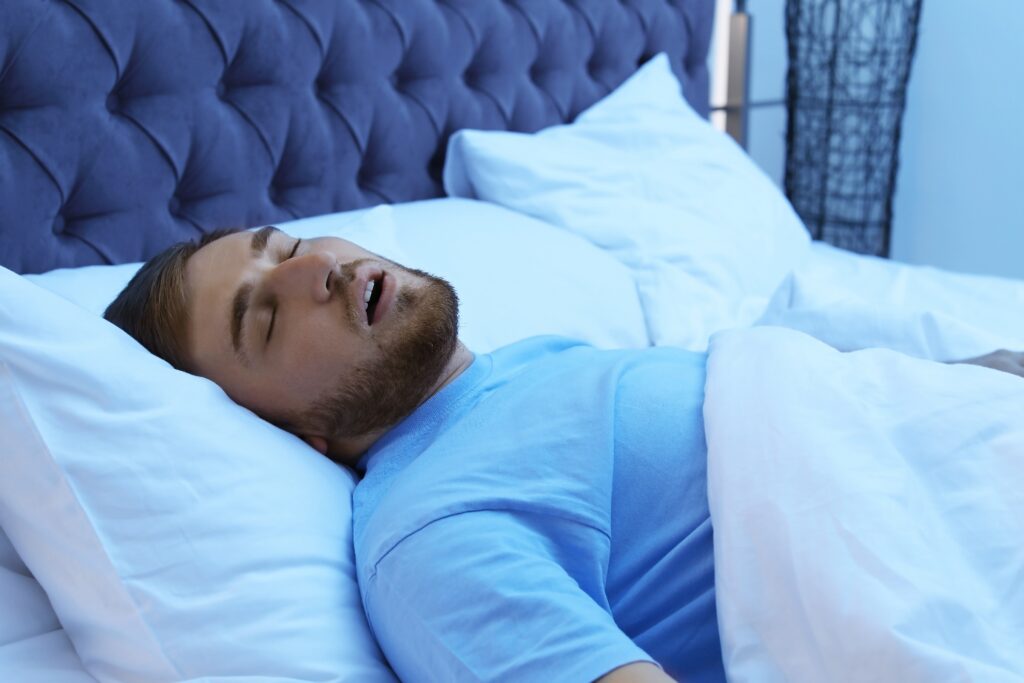
Is It Snoring or Sleep Apnea?
Almost everyone has had a brush with snoring, while as many as 45 percent of men and 30 percent of women snore practically every day. The good news is that not every snorer has sleep apnea, a sleep disorder with devastating effects on your health and quality of life. Dr. Rick Dentistry offers custom oral appliance therapy to address snoring and sleep apnea, restoring your restful, rejuvenating sleep.
Snoring - An Overview
Snoring occurs when the air flowing through the nose and mouth is partially blocked during sleep, which causes vibrations in the throat. The narrower the airway and the more forceful the airflow, the stronger the tissue vibrations and the louder the snoring.
Snoring can happen due to several reasons, including a relaxed throat, nasal congestion, or excessive alcohol consumption. While snoring can be quite an annoyance, it isn’t usually a cause for serious concern.
Sleep Apnea - An Overview
Snoring is often a sign of sleep apnea, a serious condition characterized by repeated pauses in breathing during sleep, up to 30 times an hour. There are two types of sleep apnea - obstructive sleep apnea (OSA) and central sleep apnea (CSA).
Obstructive sleep apnea occurs when the throat muscles relax and collapse during the night, blocking the upper airway and preventing oxygen from reaching the lungs. The brain senses oxygen deprivation and wakes the patient to breathe once again. The sleep-wake pattern is repeated through the night, preventing the patient from getting deep, restful sleep.
Sleep apnea symptoms include loud snoring, waking up choking or gasping for breath, morning headaches, fatigue, daytime sleepiness, difficulty focusing, mood swings, memory loss, and irritability. People with sleep apnea often grind and clench their teeth in their sleep, a condition known as bruxism.
Untreated sleep apnea is a serious matter. Oxygen deprivation increases the risk of serious health conditions, including heart disease, stroke, high blood pressure, heart failure, and irregular heartbeats. Studies also show a link between sleep apnea and diabetes type 2, chronic acid reflux, obesity, metabolic syndrome, and surgery complications.
Snoring or Sleep Apnea Treatment Options
Determining whether your condition is snoring or sleep apnea will require a sleep study, which can take place at a sleep center or in the comfort of your home. It involves monitoring your breathing patterns, heart rate, physical movement, blood oxygen levels, and other vital signs to determine whether you have sleep apnea and, if you do, its severity.
Traditional sleep apnea treatments usually involve using a CPAP (Continuous Positive Airway Pressure) machine which blows a steady stream of pressurized air through a mask worn at night to keep your airway open. However, some patients find the hoses and noise cumbersome and continue to struggle to get restful sleep.
Dr. Rick Dentistry is pleased to offer oral appliance therapy to address snoring and sleep apnea. Depending on your unique needs, Dr. Rick may recommend a mandibular advancement device. The oral appliance looks like a mouthguard and is designed to hold the jaw forward to keep your airway open. Another option is a splint-like soft tissue repositioning oral device that keeps the tongue in place to keep your airway open.
Sleep Apnea Treatment and Snoring Relief Near Me
If you snore or have symptoms of sleep apnea, contact Dr. Rick Dentistry in Scottsdale, AZ, to schedule a consultation. Dr. Rick may recommend oral appliance therapy to restore your restful, rejuvenating sleep and enhance your health and quality of life. Call us at 480-585-4244 to schedule your appointment, or request one online today!
